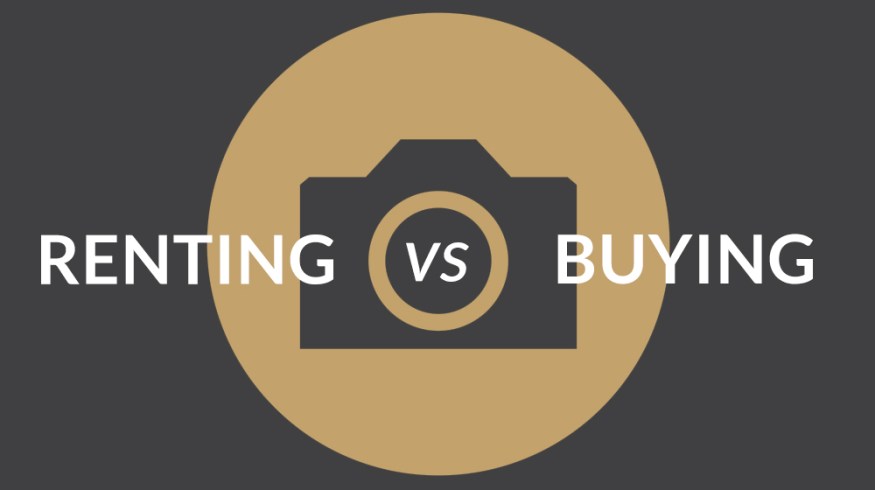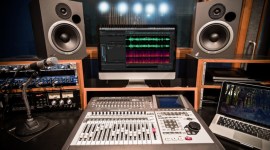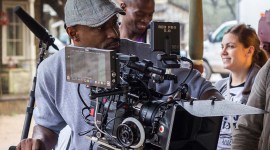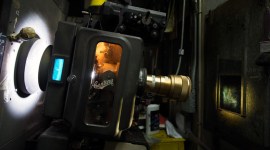
Renting vs Buying: How Do You Know When to Pull the Trigger?
With technology changing daily, the question of renting vs buying equipment is a tough one. Let’s explore these options in the context of today’s video production industry.
We are at a point where technology is changing faster than we can take advantage of it. As soon as 4K video technology jumped onto the scene, word of 5K, 6K & 8K was on the tips of many tech gurus’ tongues. So, taking into account the rapid acceleration of technology, filmmakers and video producers have to decide the best option for obtaining equipment: renting or buying? First lets look at some of the most important questions, and depending on your answers, this alone may tell you which way you should go.
What type of project is it and how long will it take?
Is this a small project where you can shoot and edit it in a day, where the income potential is relatively low? Or, is this a project that could weeks to produce, where the income potential is fairly substantial. Let’s explore this a bit…
For smaller projects, renting equipment is often the most economical, especially when they require that you won’t be needing on a consistent basis. Sites like Lens Pro to Go and Borrow Lenses have streamlined the rental business through online ordering, and offer relatively inexpensive pricing. For instance, at Borrow Lenses you can currently rent a Canon 5D Mark III for $143 for 7 days. Then add another $70 to cover insurance and shipping and you’re looking at $213. Most rental companies will throw in some camera accessories with the rental purchase. If it doesn’t come standard be sure to enquire about this!
Ensure whatever project you’re working on the cost of the camera rental is built into the quote for your client.
If you’re working on a longer project, say, a feature film or television series, it may make the most sense to purchase the equipment and then sell it upon completion of the project. Many reality television projects (that require tons of cameras) work this way. Depending on the amount of usage you may be able to sell the camera for close to what you bought it for (that number will likely be even closer if you bought the camera used originally). If you do buy used be cautious! There is not a shutter actuation count for video (like their is with DSLR photo usage). Be sure to inspect the camera for any scratches, check for dead pixels, ask about the repair history and ALWAYS test shoot with it before handing over money!
The other option would be to buy a camera and hold on to it, but you’ve got to factor in how many times you plan on using it a year to see if it’s a worthwhile investment…
To help in finding rental options here is a list of rental providers.
| Rental Provider | Customer Service Email | Contact Phone Number |
|---|---|---|
| Borrow Lenses | help@borrowlenses.com | (650)508-3370 |
| Lens Rentals | support@lensrentals.com | (901)754-9100 |
| Lumoid | hello@lumoid.com | (800)-683-5690 |
| Lens Pro to Go | contact lensprotogo.com | (650)508-3370 |
| Pro Photo Rental | contact prophotorental.com | (303)588-6799 |
| MP&E Equipment | contact hdgear.tv | (512)485-3131 |
| Abel Cine | customerservice@abelcine.com | (888)223-1599 |
| Rent Glass | service@rentglass.com | (913)732-4781 |
How many projects are you producing in a year?
Lets say that you’re a filmmaker who does commercial work and you produce 3 to 4 projects each month over an entire year. Is renting still your best option? If you’ll be using the same camera in most projects it would obviously make sense to purchase – renting that Canon 5D Mark III once a month would cost you much more than it’s $3,000 purchase price. There is an old saying that “If you have to borrow a tool more than once, you should probably go ahead and buy one.”
The most important thing is to be realistic. For instance, if you’re on an elaborate campaign for a client, don’t immediately run out and rent or buy the equipment just for that campaign. Look ahead and ask yourself, ‘how often will I use this equipment?’ Don’t ‘anticipate’ that you’ll need the camera often until you start renting and shooting with it consistently. Then, make the leap.
Be Responsible About Your Investment
Each option has its strengths and weaknesses. When you rent you’ll get the most current equipment that likely comes insured through the rental provider (be sure to check this!) Additionally, the rental company should be able to quickly find you a replacement camera if the equipment is defective for some reason. With renting you’ll have the freedom to switch cameras, but just like any rental setup, you won’t have any equity in the equipment.
When you buy, you don’t have to travel to pick it up or wait for it to ship. Protect your camera and gear investment by insuring it. Don’t assume it is covered under your normal homeowner’s insurance. You may require a “personal articles” policy or even a business insurance plan (some insurance companies require this if you are making money off your equipment). This additional cost may pay for itself in spades if your camera takes a bath or goes missing.






